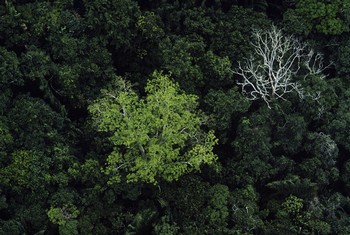International Day of Forests
"I urge governments, businesses and all sectors of society to commit to reducing deforestation, preventing forest degradation, reducing poverty and promoting sustainable livelihoods for all forest-dependent peoples", says the UN Secretary-General, Ban Ki-moon.

Forests are vital for our well-being. They cover nearly a third of the globe and provide an invaluable variety of social, economic and environmental benefits. Three-fourths of freshwater comes from forested catchment areas. Forests stabilize slopes and prevent landslides; they protect coastal communities against tsunami and storm. More than 3 billion people use wood for fuel; some 2 billion people depend on forests for sustenance and income, and 750 million live within them.
By proclaiming the International Day of Forests, the United Nations has created a new platform to raise awareness about the importance of all types of forest ecosystems to sustainable development.
Forests are often at the frontlines of competing demands. Urbanization and the consumption needs of growing populations are linked to deforestation for large-scale agriculture and the extraction of valuable timber, oil and minerals. Often the roads that provide infrastructure for these enterprises ease access for other forest users who can further exacerbate the rate of forest and biodiversity loss.
Forests are also central to combating climate change. They store more carbon than is in the atmosphere. Deforestation and land-use changes account for 17 per cent of human-generated carbon dioxide emissions. As weather patterns alter due to climate change, many forested areas are increasingly vulnerable. This underlines the urgency of a global, inclusive, legally binding climate change agreement that will address greenhouse gas emissions and encourage the protection and sustainable management of forests.
Notwithstanding these immense challenges, there are encouraging signs. The global rate of deforestation has decreased by almost 20 per cent in the past decade. We need now to intensify efforts to protect forests, including by incorporating them into the post-2015 development agenda and the sustainable development goals.
On this first International Day of Forests, I urge governments, businesses and all sectors of society to commit to reducing deforestation, preventing forest degradation, reducing poverty and promoting sustainable livelihoods for all forest-dependent peoples.
Ban Ki-moon
Secretary-General
United Nations
Also see: